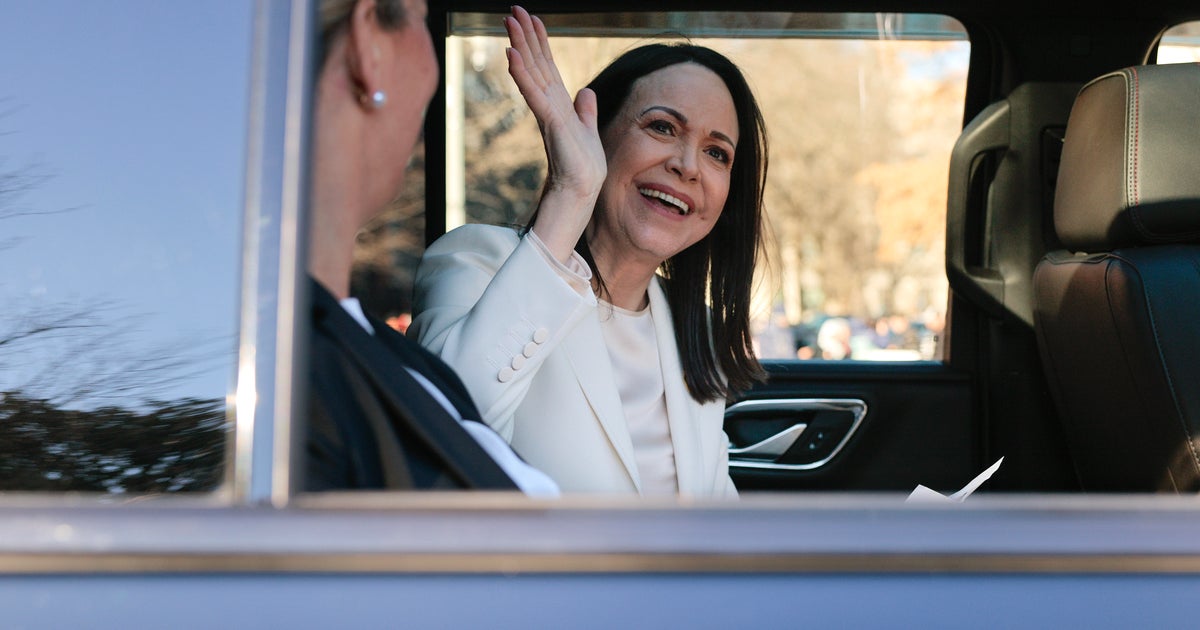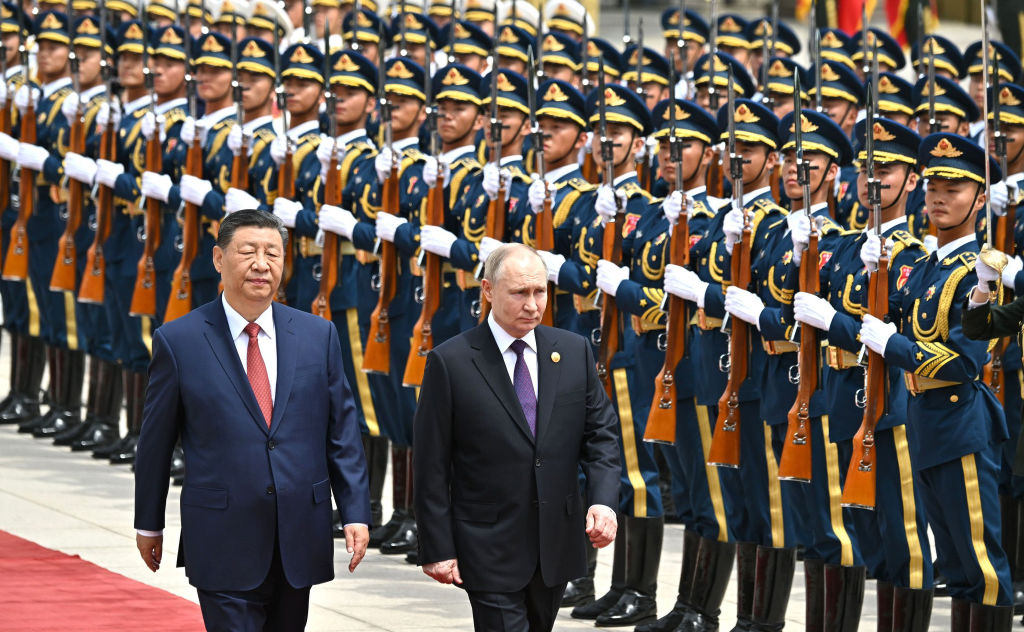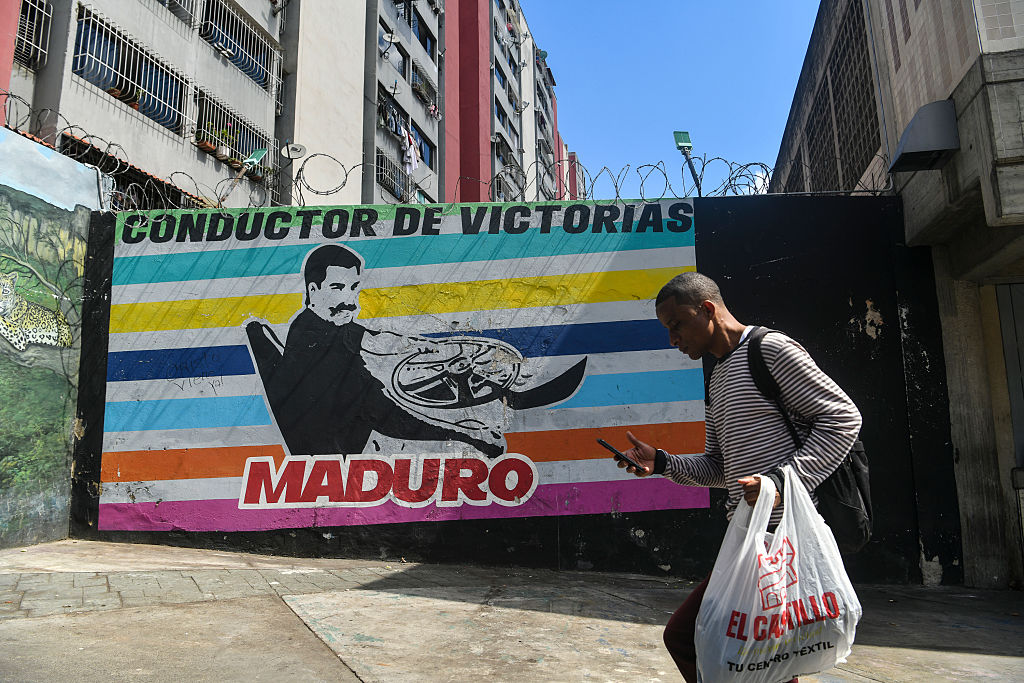Trump "monitoring" uprising led by Juan Guaidó in Venezuela
President Trump expressed support for an uprising led by Juan Guaidó in Venezuela Tuesday, and said that he was "monitoring" the situation. Mr. Trump also threatened Cuba with a "complete" embargo if Cuban military forces did not leave Venezuela.
"If Cuban Troops and Militia do not immediately CEASE military and other operations for the purpose of causing death and destruction to the Constitution of Venezuela, a full and complete...embargo, together with highest-level sanctions, will be placed on the island of Cuba. Hopefully, all Cuban soldiers will promptly and peacefully return to their island!" Mr. Trump wrote in two tweets Tuesday evening.
Guaidó, the president of the National Assembly, has declared himself interim president of Venezuela and has been recognized as the country's rightful leader by the U.S. and over 50 other countries.
Guaidó announced Tuesday morning that key factions of the military were supporting his leadership instead of that of President Nicolas Maduro, and called on Venezuelans to take to the streets to show their opposition to the Maduro regime. Guaidó said that this effort, which he calls "Operacion Libertad" -- Operation Liberty -- would be the "final phase" of the plan to oust Maduro.
Mr. Trump wrote on Twitter that he was "monitoring" the situation.
"I am monitoring the situation in Venezuela very closely. The United States stands with the People of Venezuela and their Freedom!" Mr. Trump wrote.
Secretary of State Mike Pompeo claimed in an interview that Maduro had a plane idling on the tarmac to leave Venezuela, but Russians indicated to Maduro that he should stay. Pompeo said that Maduro was headed to Havana, Cuba, and that it is "a fact" that Maduro was prepping to depart -- but he did not explain how the U.S. obtained this information.
"It's time for him to leave Venezuela," Pompeo said, adding that his advice to Maduro was to "fire up the plane."
Vice President Mike Pence wrote on Twitter that the U.S. will stand with Venezuela "until freedom & democracy are restored."
"To @jguaido, the National Assembly and all the freedom-loving people of Venezuela who are taking to the streets today in #operacionlibertad-Estamos con ustedes! We are with you! America will stand with you until freedom & democracy are restored. Vayan con dios! #FreeVenezuela," Pence wrote on the official Twitter account for the vice president.
Pompeo also wrote that "the U.S. Government fully supports the Venezuelan people in their quest for freedom and democracy" in a tweet Tuesday morning. National Security Adviser Bolton responded to Vladimir Padrino, the defense minister of Venezuela, who asserted on Tuesday that Maduro's administration "reject[s] this coup movement" by Guaidó and his supporters.
"The United States stands with the people of Venezuela," Bolton said in a tweet which tagged Padrino. He later sent another tweet tagging Padrino, Chief Judge of the Venezuelan Supreme Court Maikel Moreno, the commander of the presidential guard Rafael Hernandez-Dala, saying that "your time is up."
"This is your last chance. Accept Interim President Guaido's amnesty, protect the Constitution, and remove Maduro, and we will take you off our sanctions list. Stay with Maduro, and go down with the ship," Bolton wrote.
Bolton later told reporters that the U.S. would consider intervening in Venezuela.
"We want, as our principal objective, the peaceful transition of power, but I will say again as the president has said from the outset and as Nicolas Maduro and those supporting him -- particularly those who are not Venezuelan -- should know, is all options are on the table," Bolton said.
Elliott Abrams, the U.S. special representative for Venezuela, was more measured in his reaction to the uprising. He said that the situation on the ground remains "confused" and he didn't know why the timeline for protests expected for Wednesday got moved to Tuesday.
He also said that he wasn't aware of any timeline for negotiations with officials in the Maduro government, referring to Bolton's tweet. These negotiations have been going on among Venezuelans, and not with the U.S., for a "long time."
"I do not recall there being any time limit when the negotiations…were under way," Abrams said.
Abrams said he texted with Guaidó Tuesday and found him "buoyant and determined."
White House Chief of Staff Mick Mulvaney also seemed to tamp down expectations of American intervention in Venezuela Tuesday. "We are watching it with everyone else," Mulvaney said in an interview at the Milken Institute.
Kellyanne Conway, counselor to President Trump, told reporters Tuesday morning that "Maduro has got to go."
"This will finally get the Venezuelan people the freedom that they need," Conway said, adding that millions of Venezuelans have fled to Colombia and Brazil to escape the ongoing conflict. "I'm sure they would prefer to be in their home country, but they simply cant stay there and be expected to survive or thrive."
Conway said that the administration was "monitoring" Guaidó's actions in Venezuela, and that the U.S. wants a "peaceful transition."
Some members of Congress have also shown support for Guaidó on Tuesday. Sen. Lindsey Graham told reporters that he did not see the uprising as a "coup," but "as an effort to restore democracy." He also said that he was willing to consider military intervention.
"If they move on Guaidó and his elements, then, we're trying to restore democracy," Graham said.
Rep. Mario Díaz-Balart, Republican from Florida, said that he urged the administration to be "firm" with with regards to policy in Venezuela.
"I obviously urge the administration to continue to be firm and to take whatever further action may be necessary to make sure that, frankly, evil does not prevail in Venezuela and in this hemisphere," Díaz-Balart of Florida told CBS News Tuesday afternoon.
Christina Ruffini and Camilo Montoya-Galvez contributed to this report





